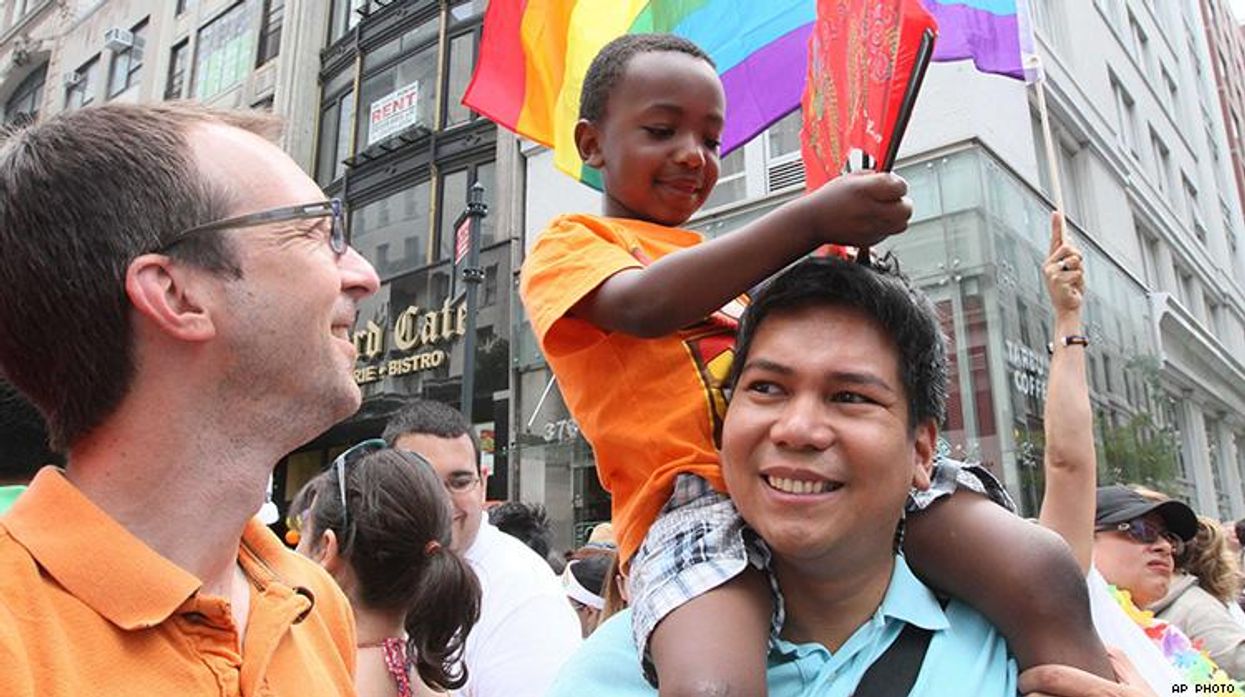I have benefited from affirmative action. Affirmative action gave me, as a gay Asian youth coming out in the 1980s and a young lawyer in the 1990s, a fair opportunity to overcome discrimination. I was able to reach for my fullest potential, develop new strategies, and win new rights for my community.
I had a hard time coming out in high school and early in college. Back then, all the gays were white and all the Asians were straight. I wondered: Where do I belong? There were no role models for me. I was socially awkward and badly bullied. In my dorm, the guys threw my bed out and put it near the trash. Someone scrawled "fag" on my door. The Asian student club was useless. They were more interested in fashion shows than supporting struggling individuals.
Without support I couldn't focus on my studies. I got 'F's in two of my subjects first semester. Then 'C's in second semester. Freshmen year passed and things got better. I became more confident, my grades improved, even making dean's list once. But regardless of how hard I worked or how many 'A's I got, those first year failing grades kept bringing my grade point average down. I looked dumb on the first line of my transcript.
After college, I got a job as a legislative advocate. I lobbied for a hate crimes law and increased education funding. I was the only Asian person walking the halls of the legislature. Again, no one looked like me. I did not mean to be any sort of pioneer but I was told that I was a role model for others who dreamed of going into government and public policy.
My parents wanted me to be a doctor, but that was too hard and too much schooling. So I told them I would go to law school. Unfortunately, I did not master the LSAT entrance exam. Like other Asians I took an expensive preparatory course, but I scored only 153, a little below mediocre.
I had a strong resume. I demonstrated that I could write effectively and think strategically. I had the drive and aptitude to improve. But I was academically unqualified to go to law school. One law school, however, had an aggressive affirmative action admissions policy. Wanting to ensure a diverse student body and have more Asian-American students, they took a chance on me and I was admitted.
I excelled. I aced some courses. I made law review, the school's elite academic journal, which only accepts the highest caliber of students. I graduated with high honors, and in the top 7 percent of my class. After graduation, I landed a coveted legal fellowship, which also considered race in their selection criteria. Affirmative action gave me a chance to prove myself.
I worked at the Asian American Legal Defense and Education Fund for nearly 20 years fighting for Asian-American voting rights. I litigated the Constitution of the United States. I practiced at the U.S. Supreme Court. Congress summoned me to testify before them as an expert. Today, I even teach law, training new legal minds and writing scholarly legal articles at a highly ranked law school --a school that did not admit me as a student because of my grades and LSAT score.
Because of affirmative action, Asian-Americans now enjoy new rights in many states and cities. I have filed winning lawsuits to translate ballots into Chinese. I am pretty sure that the parents of the Asian kids who are suing Harvard for affirmative action are benefitting from this affirmative action beneficiary's work on their behalf.
A few years ago, I transitioned from civil rights enforcement to executive management. I became the executive director of the National Queer Asian Pacific Islander Alliance (NQAPIA) -- a federation of 50 organizations across the country. I am working to train a new generation of Asian-American LGBT leaders, building a vibrant network of racial justice activists, and changing hearts and minds for greater rights and understanding.
These achievements are due to the opportunities I was afforded because of affirmative action. Before law school, I had all the academic indicators of a first year law student who would fail, yet I succeeded. Affirmative action gave me a fair chance in a time when LGBT Asian-American youth had few chances. Asian youth still face too many unfair obstacles. If I were judged on academic merit alone, I would never have achieved so much. I have endured hardships yet affirmative action helped me to overcome them.
GLENN D. MAGPANTAY, Esq. B.A. State University of New York (SUNY) at Stony Brook J.D. New England School of Law, Boston, MA cum laude. Executive Director of the National Queer Asian Pacific Islander Alliance (NQAPIA), a national federal of LGBT Asian American, South Asian, Southeast Asian, and Pacific Islander organizations; Adjunct Assistant Professor of Asian American Studies, Hunter College. CUNY, Adjunct Associate Professor of Law, Brooklyn Law School.















Charlie Kirk DID say stoning gay people was the 'perfect law' — and these other heinous quotes
These are some of his worst comments about LGBTQ+ people made by Charlie Kirk.